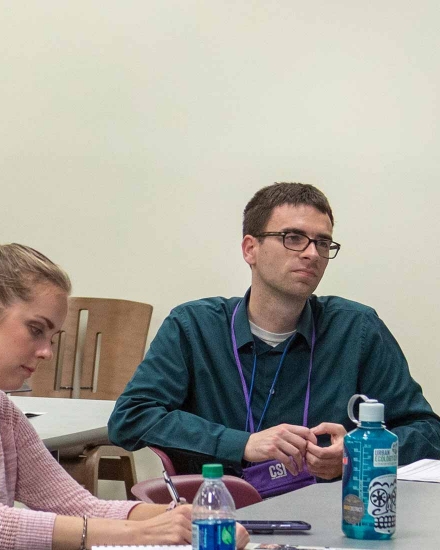Enrichment Experiences For The Music Classroom
Aug 2019
One mission of music education is to provide opportunities for students to explore inventive avenues that create artistic expressive communication of music. Lesson plans are designed to meet that objective; however, they are traditionally guided by overarching curricula expectations and pacing guides. A good music educator understands that the implementation and presentation of any curriculum provide flexibility, allowing teachers the opportunity to find engaging and meaningful activities to meet the said curriculum goals. Instructors yielding the most success in performance accomplishment utilize a variety of supplemental enhancement opportunities aiding engagement and musical success. Several enrichment experiences educators may want to explore incorporate relevant, real-life connection points including composer days, composition consortiums, guest artists, and concert camps.
Research suggests that the use of modeling is highly effective in the teaching of music expression. Thus, one of the most significant musical enrichment experience one can provide is the engagement of guest artists. Consider inviting guests into your classroom often. Visiting artists offer new experiences with students allowing for new voices to be heard, tangible aspiration, instrument-specific pedagogy and modeling, and a break in the routine stimulating stronger student engagement. These visitors might be former students who have graduated high school or the university. College instructors may visit as part of their university’s recruitment plan. Additionally, various music retailers, vendors, and manufacturers (such as Conn-Selmer), participate in guest artist/performer sponsorship programs. Qualified visitors can inspire both students and instructors. They may focus on a specific piece of music, or fundamental skills, offer encouragement through the use of story from their culture or may instruct in a different manner allowing a concept to be understood from a different perspective. Sometimes, it takes a special guest to say what you’ve been saying but just in a different way to achieve the desired result. Guest artists can be used for a specific event or be contracted for a series of masterclasses, or sectional help for an extended period during the school day or in an extra-curricular format.
When hosting a guest, remember to communicate clearly your objectives for the visit, as well as establish the time frame the guest will rehearse or speak, and finally, discuss payment. Often, when using a sponsored guest artist or university faculty on a recruitment visit, no payment is needed. Moreover, high school students, in a mentoring role for a middle school program, might not require compensation. Instead, award service hour credit in organizations like National Junior Honor Society or Beta Club. Compensation for other guest artists vary contingent on the guest’s level of experience and frequency of instruction requested. Guest artists or performers will lend a different perspective on a composition as they rehearse at a different pace, use different teaching metaphors and examples.
Another wonderful enrichment opportunity for music educators seeking a balanced and well-rounded program for their students is to host a concert camp. This camp is designed to be one-two days of expert and inspirational training improving student’s musical technique and skills under the direction of outstanding clinicians. A concert camp may be used to reinforce spring contests or festival music. They can take place at various times in the preparation of the literature cycle (i.e. the beginning of learning, middle, or at the “polish” stage).
There is a wide array of possible elements in a concert camp including formal or informal performances as the camp concludes, interaction between guest artists and the students, or a social event. Other musical learning can occur through sectional master classes, and chamber music ensembles. Additionally, there are several possible formats including a Friday and Saturday, Saturday only camps, Friday evening, or two evenings during a week.
The staff involved during the concert camp is crucial and can be varied. When selecting personnel for the camp, consider the needs of the student musicians as well as the professional development needs of the staff and directors. A variety of guests can be utilized depending on the vision and goal of the event. Local, in-state, or out-of-state clinicians and conductors can be brought in to engage ensembles. Booster parents serve an important function in concert camps coordinating meals and offering hospitality. Booster parents also may provide medical aid, clinician transportation assistance and general supervision support.
Concert camps are beneficial to students and directors providing a musical, interpersonal relationship enrichment, as well as task cohesion. Both students and instructors can achieve musical growth from the experience as meaningful insights are acquired through musical and social progress. As you strive to provide the greatest musical, artistic and social activities for your students, consider supplementing the curriculum provided. Seek new ways to enhance student experiences using augmented enrichment offerings. Incorporating the engagement of guest artists, and concert camp events offer new viewpoints, enhanced social interactions, and varied pacing for greater relevance with stronger engagement in the music classroom. A little organization, financial planning, and time management can lead to huge payoffs within your music program.

